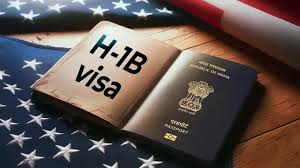H-1B, maybe: On Donald Trump and the H-1B visa fees hike.
India’s tech workers must reduce their reliance on U.S. jobs.
President Donald Trump’s decision to charge new applicants for the H-1B highly skilled non-immigrant visa $100,000, nearly six times the current fee, has caused widespread consternation that not only might the lives of tens of thousands of potential visa applicants in the tech space be impacted, leading to “humanitarian consequences” for families, as mentioned by India’s Ministry of External Affairs, but there will also be widespread disruption among major tech companies in the U.S. that rely on hiring skilled workers under this visa. While the number of visas issued in this category has been capped at 85,000 per year since 2004, and allocations are decided through a lottery, reports based on U.S. Citizenship and Immigration Services data suggest that applications for the upcoming fiscal year have dropped to a four-year low of nearly 3,59,000. Indian nationals typically account for 71% of these visas, yet data also suggest that close to 60% of these visa recipients earn less than $100,000, which, over the longer term, implies that their employers may find it harder to justify hiring such specialised workers from abroad. The External Affairs Ministry’s response to the White House action included a reiteration of the fact that “Skilled talent mobility and exchanges have contributed enormously to technology development, innovation, economic growth, competitiveness and wealth creation in the U.S. and India”, yet there is limited scope for South Block to apply pressure, diplomatic or political, to get the policy reversed.
However, the fallout for Indian citizens can be contained if there is a proactive approach by the Government to bolster India’s infrastructure and undertake necessary reforms to improve the prospects for the Indian tech industry to make even greater strides than it has done so far. This might be achieved by capitalising on opportunities to develop new capabilities in the Artificial Intelligence space and exploring new markets across Asia, including China and Russia, and in parts of Europe, where the transatlantic contagion of nativist protectionism has not yet found willing takers. While the Trump order is set to expire within a year, there is no guarantee that it would not be extended, making it all the more pertinent for policymakers in India to evolve a long-term plan to reduce reliance of Indian tech workers on the shrinking pool of job opportunities in the U.S. economy. As India and other countries adjust to this new reality of the hostility of the Trump White House to welcoming future innovators, job-creators, and tax-payers to their shores, it is the U.S. rather than other nations that will suffer a shortage of scientific and engineering prowess to fuel economic progress.
